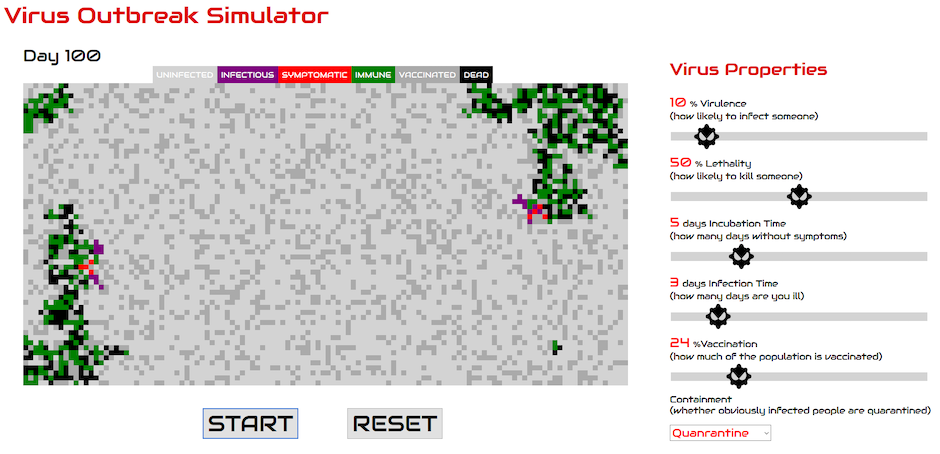The UK recently lost its measles eradication status, leading to urgent calls for action and making vaccination an important and timely issue with the potential for far-reaching impact. Meanwhile, the current Covid-19 pandemic and the discovery of a vaccine has renewed interest in and fear of vaccinations. The novel ORION VACCINE project aims to create together with young people a digital game and engagement tool for engaging the public with the science behind vaccinations, infections and the immune system.
The VACCINE project is managed by the ORION partner Babraham Institute (BI) and the seed of this co-creative project is the VirusBreak simulator developed by BI researchers Adrian Liston and Simon Andrews. The project will work with a diversity of stakeholders to adapt the existing simulation tool into an online game, which can also be used as an engagement tool.

The primary target audience for the game, and the age of the students that will be invited to develop the product, is children aged 11-14 (UK school years 7-9). More generally, the project will be of relevance for anyone interested in co-creation of public engagement activities, health communication and working with young people.
The project will run for 9 months, from 1st November 2020 to 31st July 2021 and will involve collaboration with school children in Cambridge, UK, to achieve its objectives. Including children as an equal stakeholder in design and development is an innovative approach to activity design and will ensure that the end product is effective at engaging this group. Bringing together a diverse range of stakeholders will provide opportunities to develop new ways of thinking and generate novel ideas that can impact the perception of vaccines across Europe.
The ORION VACCINE project focuses on creating a freely available educational resource - an online game - and is based around the Responsible Research and Innovation (RRI) pillars of public engagement and science education as well as gender, ethics and open access. The latter will be considered throughout by, for example: engaging a gender balanced sample of stakeholders; addressing the ethics of vaccination in workshops; and providing open access resources.
The project will put extra emphasis on the co-creation phase in line with ORION co-creation process. The design and testing of the game will therefore involve a series of co-creation sessions with Year 9 (age 13-14) children from the Cambridge Academy of Science and Technology. These co-creation sessions will impact the design, format and structure of the final product. A workshop element on the science behind vaccinations, incorporating the existing simulation, will be included, so the project acts as an educational opportunity in itself.
By including children in the design of the product, this leads to the creation of new ideas which will improve the appeal of the product to this demographic. Participants will be guided but free to express their thoughts, opinions and attitudes towards the product. The first co-creation workshop will be held in January 2021.
More information
To learn more about the ORION VACCINE project and its activities please get in touch with Fergus Powell Schools Public Engagement Officer at the Babraham Institute.